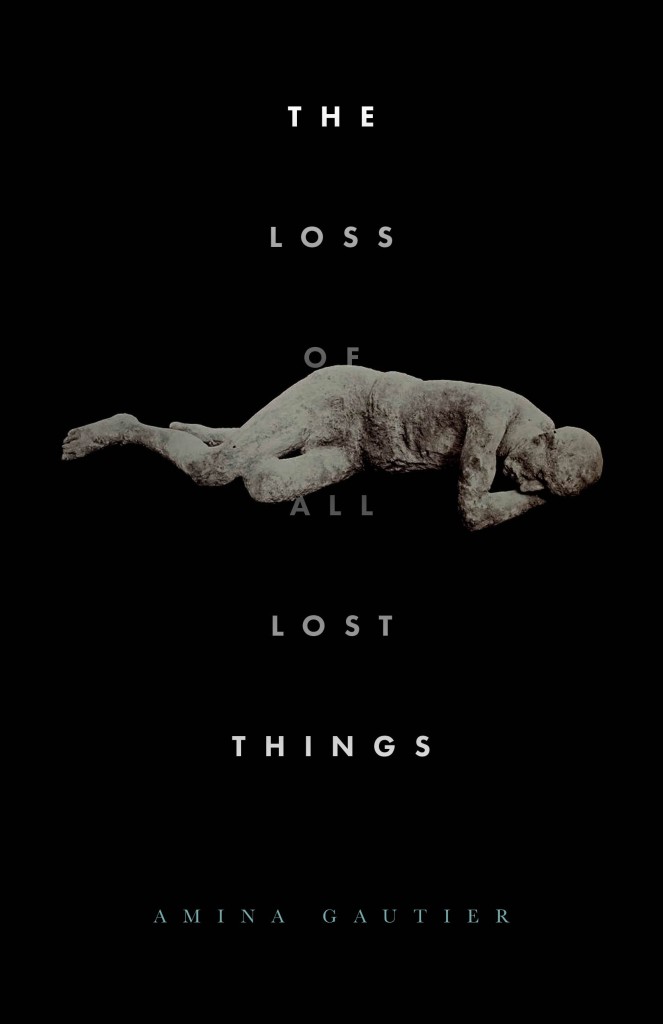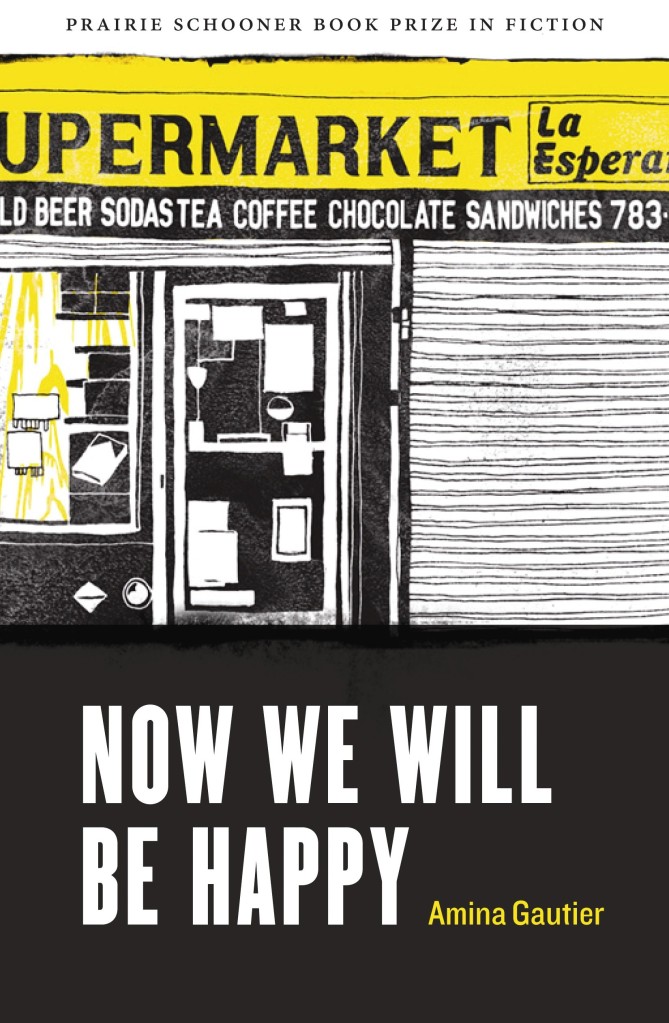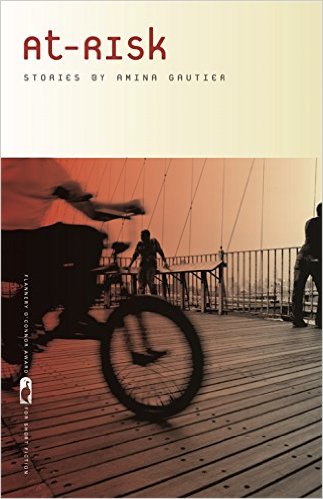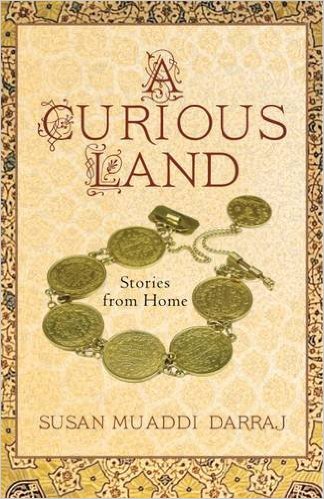
Amina Gautier writes short stories, and her short story collections win awards. It’s about that simple. Back in 2011, for instance, her debut collection At-Risk earned the Flannery O’Connor Award and the First Horizon Award among other honors, and her 2014 follow-up Now We Will Be Happy won the Praire Schooner Book Prize. This past February Gautier continued the trend with The Loss of All Lost Things – a gripping collection of fifteen stories that explores the unpredictable ways in which characters deal with the loss of their loved ones, careers, reputations, and hometowns. Not only did her third collection win the Elixir Press Award in Fiction, but Gautier was also included on Newcity’s 2016 Lit 50 list and is set to receive the Chicago Public Library’s 21st Century Award in October. Back on May 9, Gautier visited EPL to read from The Loss of All Lost Things as part of the 2016 Evanston Literary Festival, but if you missed her that night, have no fear. You can catch her this Saturday, June 11 at the Printer’s Row Lit Fest, and what’s more, we recently spoke with her via email about her love of the short story form, her creative process, and the challenges of writing intimately about loss.
Evanston Public Library: As the author of three award-winning story collections, can you discuss what so attracts you to the form? What started you writing short stories? Who are some of the writers that have influenced you the most?
Amina Gautier: I love fiction in both its short and long forms and all of its middling forms in between. From short short to novella, from short story to novel, I just love fiction for what it does and what it has the potential to do. When I first began writing seriously, I had not made a conscious decision to choose writing the short story form over the novel form. At Stanford University, I took workshops in which students tended to submit short stories, but I also took a specially designed workshop for novel writing with the writer Keith Scribner. After Stanford, during my five and a half years of graduate study at the University of Pennsylvania, I studied literary criticism by day and wrote fiction by night. In addition to the twenty-five stories I published while at Penn, I also drafted two novels, so you can say that I’ve actually always written both, but so far I’ve chosen only to publish short fiction. Has it been a conscious decision? Absolutely.
When I showed one of my novels to my (former) agent, he praised it and then proceeded to suggest revisions that would make it fit a formula that would guarantee it would sell. Now I am a lover of revision, but when I revise it is with the intention to improve upon rather than stultify what I have created. Many of the suggestions were racist and sexist in nature, involving boiling down my characters to recognizable types rather than expanding upon them or breathing more life into them. This is one case in point, but it is representative of several of my other experiences involving novel submission. All I can say is that anytime someone pulls out a cookie-cutter and aims it at my manuscript, I will take off running and not look back.
 My background as a literary scholar has given me a wealth of knowledge about literature written in the western world including knowledge of the ways in which writers have dictated the trends and shaped the literary markets of their day. Most of them did not do it by adhering to a marketing formula. So when I am told that there is a formula to follow in order to achieve success, I prefer to rely upon my own training, which looks at a much larger picture. In college literature courses, we do not praise the writers who followed the crowd. I am an artist, and I believe in artistic integrity. At present, I have been able to wield more artistic control over publishing my short stories and my short story collections.
My background as a literary scholar has given me a wealth of knowledge about literature written in the western world including knowledge of the ways in which writers have dictated the trends and shaped the literary markets of their day. Most of them did not do it by adhering to a marketing formula. So when I am told that there is a formula to follow in order to achieve success, I prefer to rely upon my own training, which looks at a much larger picture. In college literature courses, we do not praise the writers who followed the crowd. I am an artist, and I believe in artistic integrity. At present, I have been able to wield more artistic control over publishing my short stories and my short story collections.
All thoughts of publishing aside, at the end of the day, I simply love short stories. I believe in them, in their beauty and precision, in their concise language, in the way they waste no words. Short stories are perfect, difficult, gorgeous, exhilarating and complete. Using an economy of language they manage to convey a wealth of words, feelings and experiences, and their very compressed nature feels something like magic, making you wonder how they manage to pull it off.
EPL: Could you give us a window into your writing process for The Loss of All Lost Things? How did you choose the stories for the collection, and when did you begin work on them? Did you start out with the overall theme of loss in mind?
AG: There are some stories in the collection that were first drafted back in 2002 and 2003 and others that were written as recently as 2014. I write in bits and pieces. That’s one of the reasons short stories attract me. I have so many ideas, so many stories in my head that I can’t devote myself to one story line for a stretch of several years the way novelists tend to do. The stories are all clamoring to be written, and as soon as I finish one, the others jostle to be next.
When I write, I sit down and simply listen. I putter for a few hours until the story I want to work on makes itself known. I always have a handful of short stories in various stages of completion because whenever I think of something I write it down longhand and then type it up into its own document and toss it away into the recesses of the computer where it sits largely ignored until I return a few months later to add to it. Thus the document slowly grows until it’s large enough that I think it’s worth taking out for a spin and seeing what I can do with it. It might sound wacky, but that’s what makes sense to me. My writing process makes best use of my temperament and makes it work in my favor. I am impatient, I am easily bored, and I am not a fan of routines. So I don’t force myself to work on only one project or one set of stories through to completion. I write what I will, when I will and I make sense of it later. That way it feels like fun and never like work. It never becomes something I dread, fear, or stress over.
 And that’s what I did for all three collections. Many of the stories for The Loss of All Lost Things were written alongside the stories that went into At-Risk and Now We Will Be Happy. After I’d published a significant number of stories—around fifty or so—it became evident that there were several recurring themes emerging within my oeuvre. Whenever I wrote a story that seemed to speak to one of the themes I’d identified, I mentally added it to that category, building the collections in my mind, so to speak. And I think building is definitely the correct term for the way in which my collections come into being. If I spend months writing a story about loss, the last thing I want to do once I’m finished is do it again. At that point, I’m bored with the subject. I have to write a bunch of other stories before I become interested in returning to that topic again.
And that’s what I did for all three collections. Many of the stories for The Loss of All Lost Things were written alongside the stories that went into At-Risk and Now We Will Be Happy. After I’d published a significant number of stories—around fifty or so—it became evident that there were several recurring themes emerging within my oeuvre. Whenever I wrote a story that seemed to speak to one of the themes I’d identified, I mentally added it to that category, building the collections in my mind, so to speak. And I think building is definitely the correct term for the way in which my collections come into being. If I spend months writing a story about loss, the last thing I want to do once I’m finished is do it again. At that point, I’m bored with the subject. I have to write a bunch of other stories before I become interested in returning to that topic again.
EPL: Along similar lines, was it emotionally taxing to write so intimately about the loss of love, home, and family? Which stories were the most challenging?
AG: Yes, to say the least, writing about so much loss was emotionally taxing. Many of the stories (“As I Wander,” “Been Meaning to Say,” “Cicero Waiting”) took a toll on me, but “Lost and Found” and “The Loss of All Lost Things” – the two stories about the kidnapped boy – were absolutely the most challenging to write. The two stories began as one, a draft of which I wrote in 2010. I spent years doing research, watching news shows and documentaries on abducted, kidnapped, and missing children, reading the blogs and websites of their parents, reading transcripts of cases, all of which was emotionally harrowing. I’m not the type of writer or person who takes abuse or violence lightly, even when done to a character rather than a real person. I would never include violence, death or abuse in a story to titillate or just “spice things up.” I include it only when I feel there is no way around it—that without it the story contains a glaring and artificial hole—and even then I try to convey the feelings of the hurt, or terror without including gratuitous or overly graphic scenes. I don’t want anyone enjoying the story for the wrong reasons. Readers are smart, and they can fill in the gaps and interpret the implications. Writing with restraint became even more necessary with these two stories. In “Lost and Found,” I needed to find a way to convey the boy’s terror without being graphic. When I wrote the line “From his pocket comes the scissors,” I wanted that line to be fraught with menace, but in order to do that I had to slowly build dramatic irony in which the boy understands some of what he experiences while the reader understands more, and his innocence amplifies the horror of the situation. So I took items that seem innocent – annual Twilight Zone marathons, Christmas cartoon classics, haircuts – and showed their terrible insides.
 All of this took a lot of time because I could only perform the research in bite-sized bits. After a few weeks of research, I’d have to stop and take a break from the material. I’d be so angry, so upset and sad. I could only take so much. I’d be at my keyboard typing and have to stop because I was crying, or I’d be reading a transcript and I’d stop mid-page, sick to my stomach. I’d have to write other stories as a sort of cleansing. Weeks or months later I’d buck up my courage, and remind myself that I was a Writer and that as such it was my job to shine light into dark corners and to tell stories for people who couldn’t tell their own stories. So I’d return, do more research, write a little more. It was a maddening circular process. All in all, it took me about five years to complete those two stories.
All of this took a lot of time because I could only perform the research in bite-sized bits. After a few weeks of research, I’d have to stop and take a break from the material. I’d be so angry, so upset and sad. I could only take so much. I’d be at my keyboard typing and have to stop because I was crying, or I’d be reading a transcript and I’d stop mid-page, sick to my stomach. I’d have to write other stories as a sort of cleansing. Weeks or months later I’d buck up my courage, and remind myself that I was a Writer and that as such it was my job to shine light into dark corners and to tell stories for people who couldn’t tell their own stories. So I’d return, do more research, write a little more. It was a maddening circular process. All in all, it took me about five years to complete those two stories.
EPL: What inspired your story “Disturbance?” What types of loss does it explore?
AG: Oh, so many losses are featured in that story! There’s loss of values, loss of shared community, loss of country—after all, these are people who have essentially seceded from their nation to form a new one—loss of ideals, loss of sympathy and compassion. And there’s an irony in their loss which they fail to comprehend. The townsfolk in Togetherness separated in order to protest what they considered to be a nation’s loss of values, mores, and genuine sentiments, but after they’ve formed the version of the world that they want to see, they lose their vision and their good intentions and become narrow-minded, intolerant, fearful and dogmatic, as seen through their treatment of Mr. Everett. And Mr. Everett? He loses his family, his wife and daughter. He loses his identity as a respectable teacher, and he loses his standing in the community. Some might say he even loses his hold on his sanity. And Sophie loses her innocence and easy acceptance of her life with its rules. In one fell swoop, her encounter with Mr. Everett changes her heretofore unchallenged world view. So much loss.
EPL: Can you discuss the significance of the hair motif that runs through much of Loss?
AG: It’s long been said in creative writing workshops that characters are assumed to be white, unless it is specifically stated that they are not. However, that is not an assumption I make. Therefore, when characters in the collection are white, I say so. The majority of the characters in this collection are black and hair functions as a cultural and racial marker in the collection, as a way to speak the character’s race in a way that is natural to the characters. People tend not to notice what they themselves are because they consider themselves to be the norm, so it’s common that when and if you share the same race that you might focus more on differences in skin color and complexion, eye color, hair color, length or texture etc. Once you’ve established the things that make you the same, you look for the things that mark your differences.
EPL: What is the relationship between loss and sex throughout the collection?
 AG: A complicated one. Sex and avoidance become the very adult tools my characters use to deal with their losses. Some seek to replace the person with someone new, as in “As I Wander,” “Directory Assistance,” “Resident Lover” and “What Matters Most.” Others use it as a tool to avoid coming face to face with the understanding that a relationship or level of intimacy has been lost in the first place, as in “Most Honest” and “Intersections.” For some, it is or has the potential to be cathartic, as in “The Loss of All Lost Things” and “Cicero Waiting.” Sex functions as one of the mechanisms by which they cope with or confront loss because the act is open to multiple interpretations, so that physical union has the potential to be interpreted as a cleansing or healing act; it can be an answer or a question; it can be read as reconciliation, as closure; it can be balm or weapon, shared widely and frequently, or withheld—it can be both physically intimate and emotionally distant—and it can be many things at once to the two people involved.
AG: A complicated one. Sex and avoidance become the very adult tools my characters use to deal with their losses. Some seek to replace the person with someone new, as in “As I Wander,” “Directory Assistance,” “Resident Lover” and “What Matters Most.” Others use it as a tool to avoid coming face to face with the understanding that a relationship or level of intimacy has been lost in the first place, as in “Most Honest” and “Intersections.” For some, it is or has the potential to be cathartic, as in “The Loss of All Lost Things” and “Cicero Waiting.” Sex functions as one of the mechanisms by which they cope with or confront loss because the act is open to multiple interpretations, so that physical union has the potential to be interpreted as a cleansing or healing act; it can be an answer or a question; it can be read as reconciliation, as closure; it can be balm or weapon, shared widely and frequently, or withheld—it can be both physically intimate and emotionally distant—and it can be many things at once to the two people involved.
EPL: Finally, can you recommend any good books you’ve read lately? What is the best book you’ve read so far this year?
AG: Yes. The Loss of All Lost Things is the best book I’ve read this year. I highly recommend it. In all seriousness, some of the books I’ve enjoyed this year have been Susan Muaddi Darraj’s linked collection A Curious Land, Ravi Howard’s novels Like Trees Walking and Driving the King, and Chinelo Okparanta’s novel Under the Udala Trees. I’ve also been reading some short stories by Lucia Berlin that I’ve greatly enjoyed, and I read Caitlin Horrock’s flash piece “Estrellita” which is really great.
Interview by Russell J.
